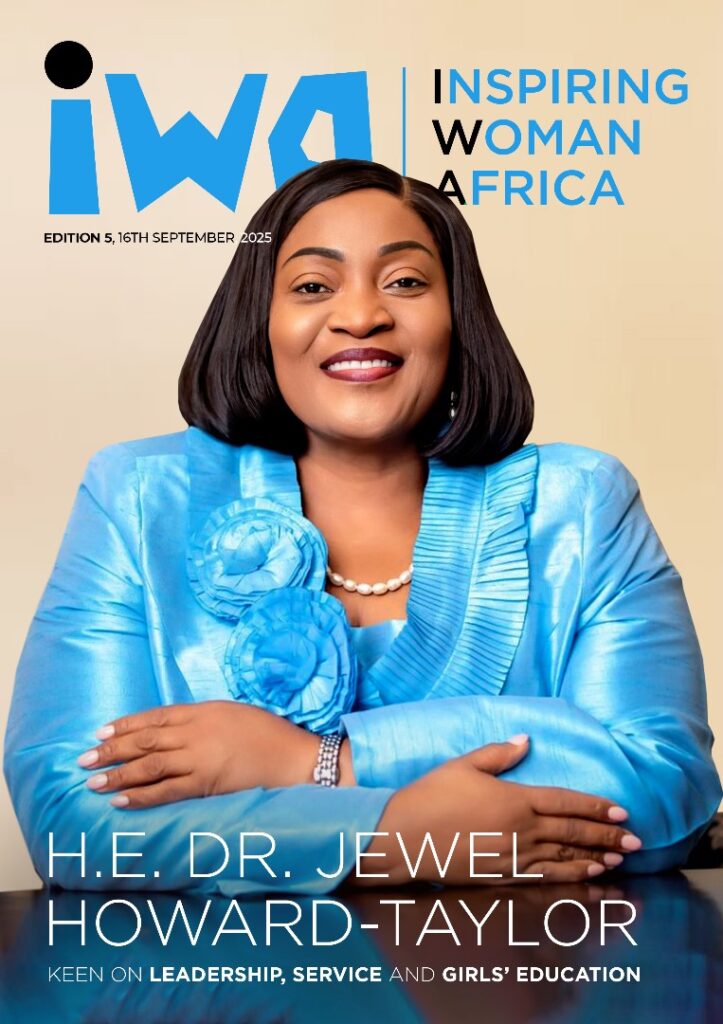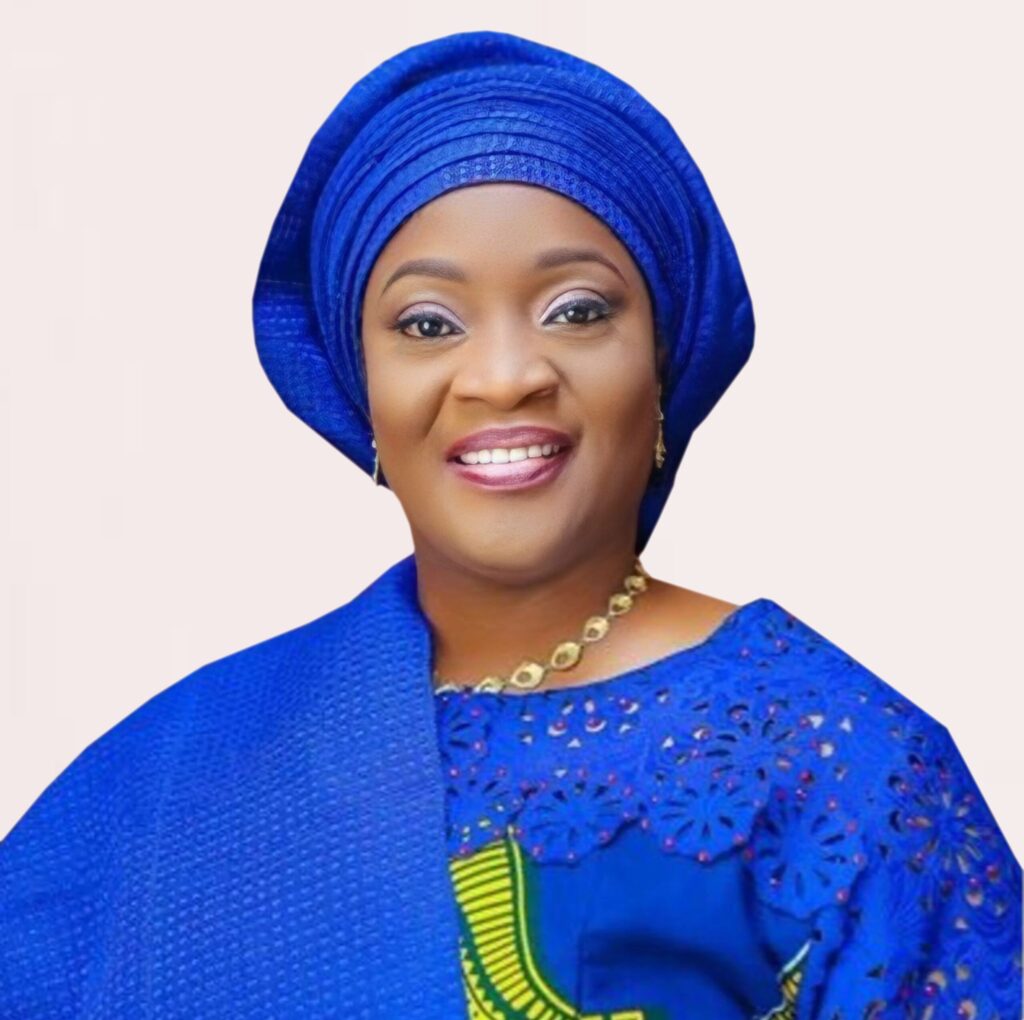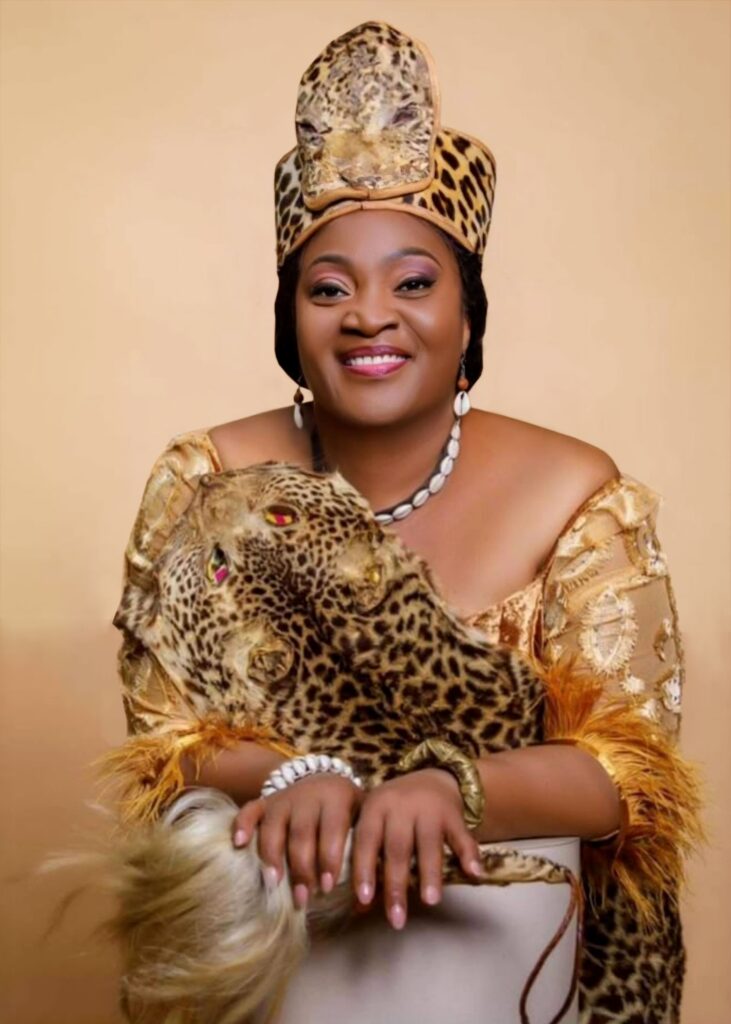
H.E. Chief Dr. Jewel Howard‑Taylor is an accomplished public service professional with over 27 years of impactful leadership across both the public and private sectors, who holds a diverse skill set encompassing public service leadership, law, governance, strategic decision-making and international negotiations, peace and security, humanitarian and social affairs.
An experienced public sector manager, trained diplomat and lawyer, proficient in conflict resolution, peace building, gender development and empowerment, humanitarian and social affairs and strategic treaty negotiations. She is recognised for exceptional communication skills, motivational leadership, mentorship and commitment to gender development, advocacy and Pan-Africanism. With a high proficiency in written communications, as well as intercultural group dynamics.
Driven by a relentless commitment to issues of global development, peace, security, gender, development and transformative leadership, Cllr. Jewel Howard-Taylor’s career embodies a passionate dedication to fostering positive change on both national and international platforms, advocating for inclusive policies and championing gender equality, peaceful coexistence, human rights, and economic empowerment.
She was the former Vice President of the Republic of Liberia and Former President of the Liberian Senate from January 2018-January 2024. Key role as deputy to the President; the President of the Liberian Senate, was ensuring legislative passage of laws and policies essential for guiding the implementation of government’s Pro-Poor Agenda for Prosperity and Development, focusing on poverty eradication, gender equality, SDGs, women’s political and economic empowerment, youth development and healthcare.
As former First Lady, Republic of Liberia from 1997-2003, she established and led the National Humanitarian Task Force during the civil crisis. This NGO provided monthly food rations, humanitarian and medical services for over 300,000 internally displaced Liberians over a 3-year period.
She is the founder of the Jewel Starfish Foundation, which advances girls’ education and leadership through scholarships, mentoring, and holistic support. JSF has enabled thousands of scholars—primarily in Liberia and also in Malawi, Ghana, and Sierra Leone—to progress from junior high through university. Its pillars include: (1) Access to Education; (2) Mentorship & Leadership Camps (3) Health, Dignity & Safety and (4) Alumnae Networks that pay opportunity forward.
Leadership journey that shaped your approach to governance and public service
There are many such moments across my 30‑year journey in both the public and private spheres. Two, however, have been decisive.
First, during my service as First Lady (1997–2003), amid the strains of civil conflict, I confronted—up close—the deep marginalisation of Liberian women and girls rooted in cultural norms, bias, and long‑standing inequalities. Guided by the counsel of my father—who insisted that his daughters’ education be equal to that of any son—I resolved to be part of the solution rather than a commentator on the problem. In 2000 I established the Mayo Starfish Foundation, which later transitioned into the Jewel Starfish Foundation (JSF), to provide girls’ scholarships and comprehensive support. By the grace of God, JSF marks its 25th anniversary this year and has enabled thousands of girls—primarily in Liberia, and also in Malawi, Ghana, and Sierra Leone—to progress from junior high through university.
Second, under the presidency of H.E. Ellen Johnson Sirleaf, I served in the Liberian Senate and worked persistently on legislative reforms to expand women’s participation and protection—among them the Gender Equity Bill and the long, complex fight against female genital mutilation (FGM). In a male‑dominated legislature, change was incremental; but we made real gains and mainstreamed a national conversation about gender equity and bodily integrity.
These experiences shaped my approach to public service: (1) women’s leadership is not optional to national development; and (2) women in public life must model excellence so that girls can see, believe, and become. We need many more “She‑for‑She” champions who extend the ladder for others to climb.

What policies or initiatives during your tenure as Vice President have been most impactful for the people of Liberia?
Impact is ultimately measured by whether families can live with dignity and hope. Within the Pro‑Poor Agenda for Prosperity and Development (PAPD), I championed and worked to convene coalitions around initiatives that touched the daily bread‑and‑butter challenges while investing in human capital:
• Social Protection: Targeted cash transfers and food‑security programmes for vulnerable households, prioritising women and children.
• Jobs and Enterprise: Youth skills and employment programs; support to small and medium enterprises through finance, training, and market access; promotion of village savings and loan schemes.
• Infrastructure & Services: Rehabilitation of roads and bridges to connect rural and urban markets; expansion of reliable electricity and clean water, including hydro and solar solutions.
• Education: Free primary education policies alongside investments in school infrastructure and teacher support.
• Health: Expanded access to vaccination, maternal and child health, and improved remuneration for health workers.
• Agriculture & Food Systems: Inputs, extension support, and market linkages to boost domestic production and reduce import dependence.
• Housing & Urban Upgrading: Steps toward affordable housing for low‑income families.
• Security & Decentralisation: Strengthening police capacity and advancing local governance so decisions can be made closer to communities.
• Women’s Empowerment: Programmes to protect rights, expand participation, and increase women’s access to resources and leadership.
These efforts were never isolated “projects”; they were mutually reinforcing investments in capability, resilience, and human dignity.
What significant challenges did you face in implementing the PAPD, and how did you address them?
Transforming ambitious agendas into everyday results is always demanding. We faced fiscal constraints, legacy infrastructure gaps, capacity limitations across the public sector, and the headwinds of global shocks. Implementation also required patient coalition‑building—across ministries, the legislature, civil society, the private sector, and international partners.
We addressed these constraints by: prioritising interventions with outsised human‑capital returns; strengthening inter‑ministerial coordination and legislative oversight; mobilising development finance and public‑private partnerships; and improving monitoring and evaluation so we could iterate. The results were mixed—as serious reforms always are—but we laid foundations that future administrations can strengthen. Development is a relay, not a sprint.
You have extensive experience in conflict resolution and peace-building. Can you provide an example of a successful initiative you led?
One of the most sensitive national challenges has been advancing the abandonment of female genital mutilation (FGM). Progress required cultural humility and sustained dialogue. As a legislator and later as Vice President, I helped convene a broad coalition: the Traditional Council, women leaders, civil society, faith communities, members of the legislature, and international partners, including UN agencies.
We visited practicing counties, listened deeply, and co‑designed alternatives that preserved valued cultural identity while protecting the health and rights of women and girls. That meant skills training and dignified alternative livelihoods for traditional practitioners, and establishing new, positive rites of passage. The process was painstaking, but it shifted mindsets and demonstrated that culturally rooted change is possible when people are respected, not condemned. The work must continue—with vigilance and partnership—so that hard‑won gains are not reversed.

As a champion for gender equality, what do you see as the biggest barriers to achieving it in Africa and beyond?
Key barriers remain: entrenched patriarchy and gender stereotypes; economic exclusion and unequal access to assets, gaps in legal protection and enforcement, under‑representation in decision‑making, gender‑based violence, conflict and displacement; and, too often, insufficient “She‑for‑She” solidarity.
The path forward is multipronged: legal reform with teeth, education from early childhood through tertiary levels, access to finance and markets for women‑led enterprises, parity measures in politics and public institutions, comprehensive services and accountability for ending GBV, engaging men and boys as allies, and intersectional approaches that meet women where they are—rural and urban, young and elderly, with disabilities, across all ethnicities and faiths. Equality is not a favour, it is a foundation for national prosperity.
How can women’s political representation be improved in Africa?
We know what works: (1) constitutional or statutory quotas and parity frameworks; (2) party‑level rules that guarantee women candidates in winnable positions; (3) financing and campaign support targeted to women; (4) protection from violence and harassment in politics; (5) leadership pipelines—training, mentoring, and networks; (6) civic education so voters understand that inclusive leadership produces better outcomes; and (7) male champions who use their platforms to normalise women’s leadership. Representation is not symbolic; it changes the policy agenda and the lived experience of citizens.
Can a nation progress without its youth? What must be done?
No nation can progress while sidelining its youth. In most African countries, they comprise the majority. We must guarantee quality, relevant education, create pathways to decent work and entrepreneurship, expand access to digital skills and innovation ecosystems, and bring youth meaningfully into governance—youth councils, participatory budgeting, and mentorship into public service. Health, including mental health and civic belonging are as essential as jobs. When youth see a future at home, nations flourish.
How have experiences in international negotiations influenced your approach to domestic governance?
International negotiations sharpen collaboration, patience, and the art of principled compromise. They teach you to widen the table, honour diverse stakeholders, and build coalitions that last beyond a news cycle. Back home, that translates into inclusive policymaking, data‑informed decisions aligned to global good practice, and relentless focus on delivery. It also reinforces a duty to model integrity—because credibility is the currency of diplomacy and domestic leadership alike.
As Chairperson of the ECOWAS National Centre for the Coordination of Response Mechanisms (NCCRM), what strategies worked at the local level?
We invested in early warning and early action by: (1) conducting regular conflict‑sensitivity assessments; (2) creating local, representative peace committees; (3) establishing trusted dialogue platforms among elders, youth, women, faith leaders, and security actors; (4) training mediators and local administrators in negotiation and de‑escalation; (5) integrating peace education into schools and community forums; (6) improving access to justice through customary and formal mechanisms; (7) partnering with civil society, academia, and regional bodies; and (8) rigorously documenting lessons learned to adapt quickly. Local ownership is the heart of durable peace.
What have you been doing after your tenure as Vice President?
I have poured fresh energy into the Jewel Starfish Foundation’s 25th‑anniversary agenda—expanding scholarships, mentorship, STEM exposure, and leadership camps; strengthening our alumnae network; and deepening partnerships across the Liberian diaspora and with regional allies. I continue to speak, teach, and convene on gender equity, governance, peace-building, and youth development—across ECOWAS fora, universities, and civil‑society platforms. Mentoring emerging women leaders remains a personal priority. Above all, I remain committed to service—wherever my experience can help build a safer, fairer, more prosperous Liberia and region.
What advice do you have for emerging leaders in public service today? What qualities are essential?
Lead with values. Listen first. Learn always. Build coalitions that outlast you. Be transparent about trade‑offs. Use technology to serve—not to dazzle. Celebrate small wins and guard your integrity.
Essential qualities include: integrity, empathy, clarity of vision, adaptability, collaboration, resilience, persuasive communication, problem‑solving, a commitment to justice, and the courage to decide. Public service is a trust; hold it with humility and purpose.
How do you maintain passion and commitment amid challenges and setbacks?
I return to purpose. I set clear, season‑appropriate goals and surround myself with people who share a service ethic. I stay close to communities—their hopes and struggles keep me grounded. I practice resilience—faith, rest, reflection, and gratitude—and I break large tasks into achievable steps. Professional development keeps my tools sharp; mentorship keeps my spirit joyful. And I never lose sight of the lives behind the statistics—each success story renews my strength.
After 30 years in governance, diplomacy, human rights, and socioeconomic development, what lessons stand out?
Inclusion is non‑negotiable. Strong institutions anchored in the rule of law are nation‑building assets. Communicate clearly; it builds trust and lowers conflict temperature. Let data guide choices and course corrections. Invest in capacity—of the state and of citizens. And take a long view: sustainable development balances growth, equity, and environmental stewardship, across generations and beyond party lines. Empower local communities; when people co‑own development, gains endure.
What legacy do you hope to leave in Liberia and the broader Pan‑African context?
I hope to be remembered as an impactful gender advocate who helped dismantle discriminatory barriers and who did more than speak—who built. Through JSF and allied initiatives, I want generations of girls to say: “Because we were educated and mentored, we led, we served, and we transformed our communities.” That is the legacy I pray for.
From First Lady to Vice President—what marked the difference between these roles, and what did you learn?
As First Lady, my role was largely ceremonial and humanitarian—focusing on social welfare at a time of displacement and need. That experience opened doors to deliver food, clothing, medical, and educational support to thousands of internally displaced families, and it seeded JSF.
As Vice President and President of the Senate, I had formal constitutional authority and responsibilities in governance, budgeting, and diplomacy. I learnt to navigate complex coalitions, to institutionalise reforms, and to be accountable at the highest levels of scrutiny. Both roles demanded service; one honed compassion, the other discipline in policy and systems. Together they strengthened my conviction that proximity to people and principled leadership must walk hand in hand.
What day will you never forget—and why?
January 22, 2018—my inauguration as Liberia’s first female Vice President. It was a personal milestone, yes; but more importantly a collective breakthrough for Liberian women and girls. It testified that persistence, preparation, and principled struggle can bend history. I carried with me the voices of many who had laboured for that day—and for the days still to come.
What are your plans for the future, especially with the 2029 presidential elections on the horizon?
My assignment to national service is not yet complete. I am consulting widely and prayerfully on the best avenues to contribute and will communicate those decisions in due season. What I can say with certainty is that I will be an active, constructive participant in Liberia’s democratic journey—focused on unity, institutions, and opportunity for our people.
Closing thoughts
The journey from First Lady to the first female Vice President has been one of resilience, courage, tears, and joy. I learnt to climb, to crawl, and to persevere—because others were watching and waiting to follow. My counsel to the next generation: dream audaciously, prepare diligently, work tirelessly, and lead unapologetically. Let your life be a bridge on which others can safely cross—and leave a legacy that lifts those yet unborn.